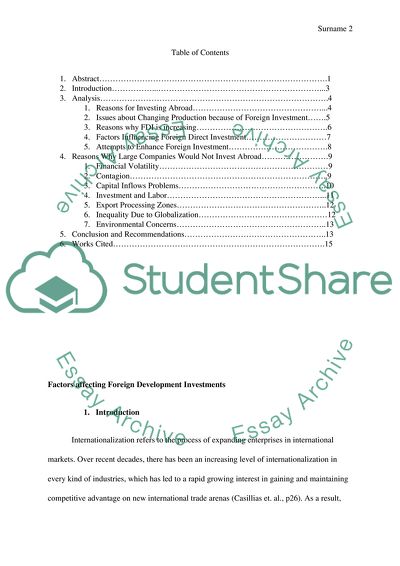Cite this document
(Factors affecting Foreign Development Investments Research Paper, n.d.)
Factors affecting Foreign Development Investments Research Paper. https://studentshare.org/finance-accounting/1819786-final-project-eng230
Factors affecting Foreign Development Investments Research Paper. https://studentshare.org/finance-accounting/1819786-final-project-eng230
(Factors Affecting Foreign Development Investments Research Paper)
Factors Affecting Foreign Development Investments Research Paper. https://studentshare.org/finance-accounting/1819786-final-project-eng230.
Factors Affecting Foreign Development Investments Research Paper. https://studentshare.org/finance-accounting/1819786-final-project-eng230.
“Factors Affecting Foreign Development Investments Research Paper”. https://studentshare.org/finance-accounting/1819786-final-project-eng230.


